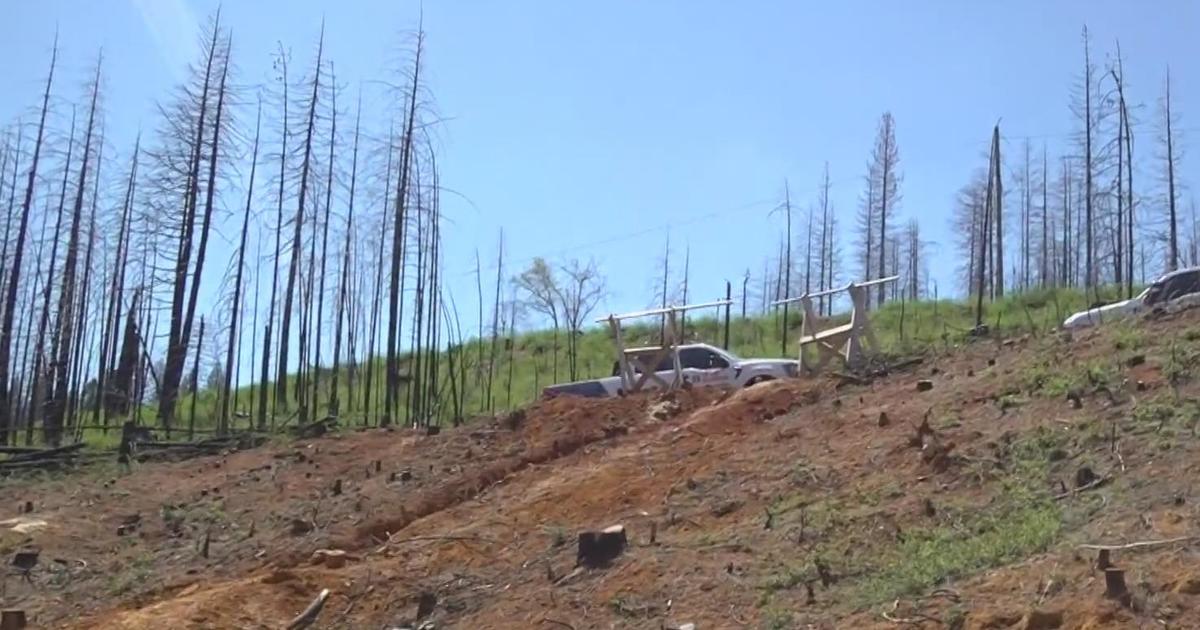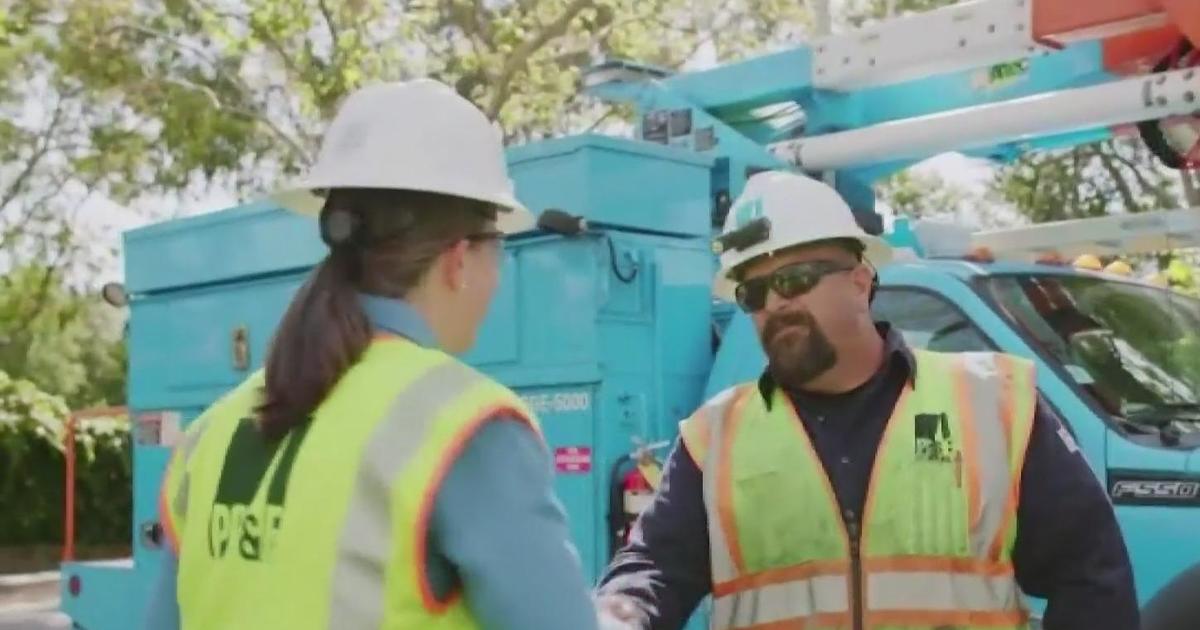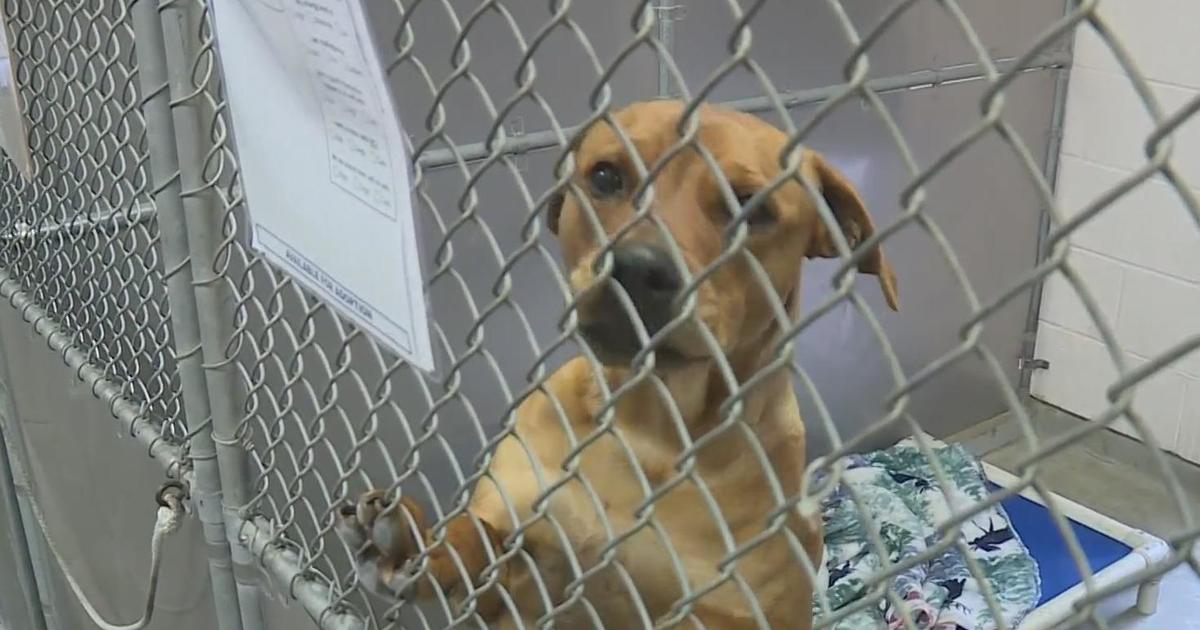Farmers Say Pres. Obama's Drought Relief Efforts Don't Address Long-Term Water Issues
FRESNO, Calif. (AP) — Farmers in California's drought-stricken Central Valley said Friday that the financial assistance President Barack Obama is delivering on his visit does not get to the heart of California's long-term water problems.
Amid one of the driest years in the state's recorded history, Obama will come to the Fresno area to announce $100 million in livestock-disaster aid, $60 million to support food banks and another $13 million toward things such as conservation and helping rural communities that could soon run out of drinking water.
Sarah Woolf, a partner with Clark Brothers Farming in Fresno County, said anything will help, but the federal government needs to better manage the state's water supplies so farmers have enough during future droughts like the current one.
"Throwing money at it is not going to solve the problem long-term," she said.
In the ever-present tension between farmers and endangered fish, Woolf said she would like Obama to recognize the importance of providing the region with ample water for growers like her. Woolf typically plants 1,200 acres in tomatoes, garlic and onions, but this year 800 acres will remain bare because there's not enough water.
Protecting the environment is important, but endangered fish too often get priority over farming, Woolf said. In wet years, too much water is sent down rivers and out to the Pacific Ocean, supposedly benefiting the fish, that could be stored up for dry years like this, she said.
The Central Valley produces nearly one-third of the nation's fruits and vegetables, and Fresno County leads the nation in agriculture. Ryan Jacobsen, executive director of the Fresno County Farm Bureau, estimates that 25 percent of the county's irrigated land will go unplanted because of the drought.
The drought has caused Democrats and Republicans in Congress to propose dueling emergency bills. Led by Republican Rep. Devin Nunes, the House passed one that would free up water for farmers by rolling back environmental protections and stop the restoration of a dried-up stretch of the San Joaquin River that once had salmon runs.
Democratic Sens. Dianne Feinstein and Barbara Boxer proposed their own version that pours $300 million into drought-relief projects without changing environmental laws. The bill would allow more flexibility to move water from the Sacramento-San Joaquin Delta to farms in the south and speed up environmental reviews of water projects.
In his visit, Obama is scheduled to meet with a round table of farmers in Firebaugh and Los Banos and see the drought's impact firsthand.
Mark Borba, of Borba Farms, said he hasn't been invited to meet the president and share his story. Borba's farm typically grows 11,000 acres of almonds, tomatoes, garlic, lettuce, onions and much more.
Because of the drought, Borba said one-third of his crops won't be planted. Rather than bringing money, Borba said the president could ease this year's drought hardship on farmers by relaxing federal environmental regulations within the boundaries of the law intended to protect endangered fish.
"We don't want money," Borba said. "We don't want a handout."
Not everybody dismissed Obama's announcement.
Rick Palermo of the Community Food Bank in Fresno said he expects that the drought will lengthen lines in three Central Valley counties he serves. The Fresno food bank expects to receive some of the president's money, but his worry is that the donations they get from farmers may be lacking.
About half of the 30 million pounds of food they distribute each month is grown in the Central Valley, he said.
"If folks aren't growing it, there's a good chance we're not going to get the type of donations we need," Palermo said. "It's a dual impact on us."
Members of least one environmental group plan to converge on Fresno to voice their positions on California's divisive struggles over water.
Members of Restore the Delta, a grassroots environmental organization based in Stockton, hope to show Obama their opposition to Gov. Jerry Brown's multibillion-dollar twin-tunnels proposal for diverting water around the delta for use on farms.
Barbara Barrigan-Parrilla, the group's executive director, said her group won't protest, but rather try to educate the president, if they get anywhere near him.
"President Obama should not be misled," she said. "We implore him not to support this boondoggle."
Click here to watch CBS13's drought special
Copyright 2014 The Associated Press. All rights reserved. This material may not be published, broadcast, rewritten or redistributed.



